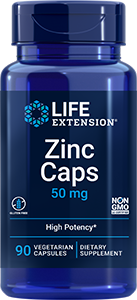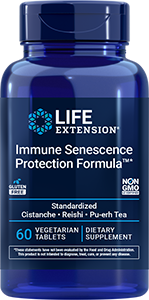
Newsletter
Newsletter
Meta-analysis affirms benefit for omega-3 fatty acid supplementation in cardiovascular outcomes

August 11, 2020
Findings from an updated meta-analysis published in the October 2020 issue of Pharmacological Research support a protective effect for supplementing with omega-3 polyunsaturated fatty acids (PUFA) against heart disease mortality, major adverse cardiovascular events and myocardial infarction (heart attack).
For their analysis, researchers selected 16 randomized, controlled trials that examined the effects of omega 3 fatty acid supplementation among a total of 81,073 participants. Trials were limited to those that included subjects at high cardiovascular risk and/or who had previous cardiovascular events. “The objective of our study was to perform a meta-analysis of all the available randomized controlled trials on cardiovascular secondary prevention and patients at high (and very high) cardiovascular risk to investigate the cardiovascular preventive effect of omega 3 fatty acid administration through supplements (no dietary counselling), with a focus on the role of dose and type of omega 3 PUFA administered, as well as its effects in populations with different cardiovascular risk at baseline,” authors Manuela Casula of the University of Milan and colleagues explained.
During the trials’ follow-up periods, which ranged from one to seven years, the intake of more than one gram per day of omega 3 was associated with a 35% lower risk of dying from cardiovascular causes, a 24% lower risk of experiencing major adverse cardiovascular events and a 33% lower risk of myocardial infarction. Further analysis revealed that a reduction in the risk of cardiac death or myocardial infarction occurred only among trials that included participants who had already experienced major adverse cardiovascular events. Interestingly, a combination of the omega 3 fatty acids eicosapentaenoic acid (EPA) plus docosahexaenoic acid (DHA) was more effective than the use of EPA alone to reduce the risk of dying from cardiac conditions; however, EPA alone, which was evaluated in three trials, appeared to have a greater association with the reduction in the occurrence of major cardiovascular events.
The authors of the report remark that the intake of one to two meals containing oily fish per week for general health as recommended by world health authorities provides only 250 to 500 milligrams per day of EPA plus DHA, and that an intake of omega 3 fatty acids well above this amount has been associated with a reduction in cardiac mortality among healthy individuals, as well as those with pre-existing cardiovascular disease.
“Stratified analyses based on levels of omega 3 PUFA above and below one gram per day highlight a relevant clinical benefit of the supplementation of omega 3 on coronary heart disease outcomes only when administered at high doses,” they observed. “Only the administration of more than one gram per day of omega 3 PUFA seems to be effective in reducing the risk of cardiac death, major adverse cardiac events and myocardial infarction.”
Products
Apply What You’ve Learned: Omega 3
The most well-known omega 3 fatty acids include eicosapentaenoic acid (EPA), docosahexaenoic acid (DHA), and alpha linolenic acid (ALA), which play a role in human nutrition.
EPA and DHA are found in fish and krill, which obtain these fatty acids from the algae they consume. Chickens that are fed a diet that contains algae produce eggs that are a source of omega 3 and grass-fed beef is another source. An additional way to obtain omega 3 is algae-sourced vegetarian EPA or DHA.1
ALA is an essential fatty acid, which means that it must be obtained in the diet. ALA occurs in a variety of plant foods, such as flax seeds, walnuts, canola oil, chia seeds and more.1While some ALA converts to EPA, which can then be converted to DHA, this conversion may not produce an appreciable amount of EPA.
A systematic review concluded that fatty acids derived from fish or fish oil (EPA and DHA) were associated with a beneficial effect on cardiovascular disease outcomes in prevention studies that was not found in association with ALA.2
References
- “Omega-3 Fatty Acids.” National Institutes of Health Office of Dietary Supplements. U.S. Department of Health & Human Services. Updated October 17, 2019 https://ods.od.nih.gov/factsheets/Omega3FattyAcids-HealthProfessional/
- Wang C et al. Am J Clin Nutr. 2006 Jul;84(1):5-17.
Featured Life Extension Magazine® Article
Boost Internal Antioxidant Defenses
by Leslie Hunter
Most of us are familiar with the term “antioxidants” and can name vitamins, minerals and other compounds that have antioxidant effects. But did you know that the body makes its own highly powerful antioxidants?
Among the most important of these endogenous antioxidants is the enzyme superoxide dismutase (SOD). Superoxide dismutase levels decline during aging, leaving people more vulnerable to oxidative damage. However, researchers have identified plant extracts from aronia (chokeberry) and a variety of melon that can help combat this decline. An extract of aronia berry has been found to stimulate the body’s production of SOD. Furthermore, a concentrate of a variety of melon directly increases cellular SOD activity.
Sleep Health Supplement Guide
By answering a few simple questions, we will help you choose the best sleep health supplements that are right for you.
What's Hot
Health Concern
Fish oil supplementation associated with reduced risk of mortality during nine-year median follow-up
An analysis reported in The BMJ on March 5, 2020 revealed a lower risk of premature mortality and cardiovascular disease events among fish oil users in comparison with men and women who didn’t supplement their diets with the oil.
Atherosclerosis and Cardiovascular Disease
Atherosclerosis is the narrowing and hardening of arteries due to the accumulation of plaque. If left unchecked, atherosclerosis can lead to cardiovascular disease, the deadliest disease in the United States. Unfortunately, many people simply focus on reducing a few of the risk factors, such as cholesterol and high blood pressure, yet ignore a host of other risk factors.
Related Life Extension Magazine® Articles
Have you read the news?
Current findings published by news media worldwide on the topics of health and wellness, dietary supplements, diseases such as atherosclerosis, arthritis and stroke, and numerous other subjects of interest to those who wish to live a longer, healthier life are posted each day in Life Extension Daily News. New articles posted seven days a week under the headings of vitamins, nutrition, disease and aging cover a range of subjects, from health tips for the lay person to peer-reviewed medical journal reports.








